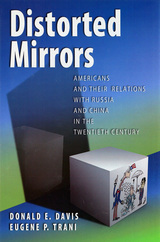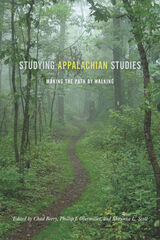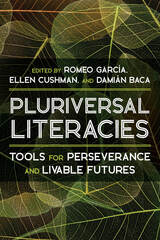


Essayists argue for Appalachian Studies' integration with kindred fields like African American studies, women's studies, and Southern studies, and they urge those involved in the field to globalize the perspective of Appalachian Studies; to commit to continued applied, participatory action, and community-based research; to embrace more fully the field's capacity for bringing about social justice; to advocate for a more accurate understanding of Appalachia and its people; and to understand and overcome the obstacles interdisciplinary studies face in the social and institutional construction of knowledge.
Contributors: Chris Baker, Chad Berry, Donald Edward Davis, Amanda Fickey, Chris Green, Erica Abrams Locklear, Phillip J. Obermiller, Douglas Reichert Powell, Michael Samers, Shaunna L. Scott, and Barbara Ellen Smith.

“This book will serve as a valuable resource for other scholars in their attempts to better understand how Latino newcomers are transforming their new homes in this country.” —Melvin Delgado, author of Social Work with Latinos: A Cultural Assets Paradigm
The Dalton-Whit?eld County area of Georgia has one of the highest concentrations of Latino residents in the southeastern United States. In 2006, a Washington Post article referred to the carpet-manufacturing city of Dalton as a “U.S. border town,” even though the community lies more than twelve hundred miles from Mexico. Voices from the Nueva Frontera explores this phenomenon, providing an in-depth picture of Latino immigration and dispersal in rural America along with a framework for understanding the economic integration of the South with Latin America.
Voices from the Nueva Frontera sheds new light on the often invisible changes that have transformed this north Georgia town over the last thirty years. The book's contributors explore the changes to labor markets and educational, religious, and social organizations and show that Dalton provides a largely successful example of a community that has provided a home to a newly arriving immigrant work force. While debates about immigration have raged in the public spotlight in recent years, some of the most important voices-those of the immigrants themselves-have been nearly unheard. In this pathbreaking book, therefore, each chapter opens with an interview of a worker, student, teacher, or other professional involved in the immigrant experience. These narratives add human faces to the realities of dramatic change occurring in rural industrial towns.
Sure to spark lively discussion in the classroom and beyond, Voices from the Nueva Frontera gives readers a look at individual human stories and provides much-needed documentation for what might be the most important social change in recent southern history.
Donald E. Davis, Thomas M. Deaton, and David Boyle are on the faculty at Dalton State College. Jo-Anne Schick is the former director of the Georgia Project.
READERS
Browse our collection.
PUBLISHERS
See BiblioVault's publisher services.
STUDENT SERVICES
Files for college accessibility offices.
UChicago Accessibility Resources
home | accessibility | search | about | contact us
BiblioVault ® 2001 - 2024
The University of Chicago Press









